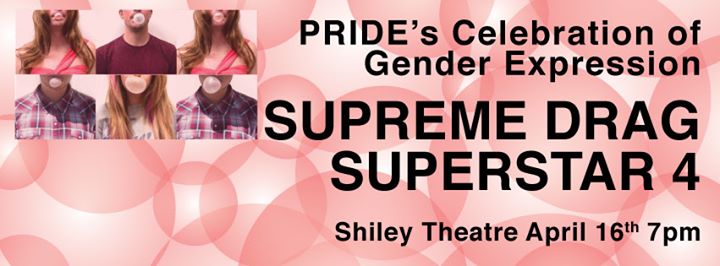Taylor Alesana was only 16 years old when she committed suicide on April 2 in Fallbrook, California. Taylor’s friends mourned her death at a vigil last Thursday night at the LGBTQ Resource Center in Oceanside, California. In December, Taylor posted a video online in which she said she did not feel safe at her high school. Because of persistent bullying, Taylor wondered what to wear to school. “When everything gets safer and people learn to accept transgender people for who they are, then definitely I will come back out,” she said in the video. Taylor was the second transgender teen to commit suicide in two months, according to the San Diego Union-Tribune, and their deaths came just months after the suicide of Leelah Alcorn, whose death received national attention in part because of the way her Christian parents rejected her transgender identity.
What responsibility do I have as a cisgender Catholic when I learn of stories like Taylor’s or Leelah’s? How can my faith tradition work to make the world safer and more just for all people, no matter their gender identity or sexual orientation? These questions take on new urgency each April as my school prepares to host the drag show, an annual event sponsored by PRIDE. This year’s Celebration of Gender Expression will happen on Thursday, April 16, just two weeks after Taylor’s death.
Some claim that because USD is a Catholic university, we should not allow this event to occur on campus. The group Alumni for a Catholic USD has petitioned to the Vatican Congregation for Catholic Education, asking them to denounce the event. This group claims that the drag show causes scandal. This year they asked people to sign a petition which reads: “I am signing this petition because as a practicing Catholic I believe what the Church teaches about gender ideology and sexual immorality. I cannot stand by and just let this happen at a University that claims to be Catholic.”
I feel differently about the drag show. As a practicing Catholic, I believe what the Church teaches about human dignity. I believe that I have a responsibility to listen and learn from people whose life experiences are different than mine. I believe that human sexuality is a gift from God and that our embodiment is worth celebrating. I believe that practicing kindness, compassion, inclusion, and mercy is a more helpful posture than personal attack when one wants to affirm life and persuade someone of the relevance of one’s faith tradition. Leelah Alcorn did not think that Christianity offered any hope for her life. She did not see her parents’ faith tradition as nurturing of her identity as a beloved child of God. Had my experience of the Church been similar, I might have come to similar conclusions. But my experience of the Catholic Church is different, and for that I am very grateful. But with this gratitude comes pain, as I realize the harm that can be done with even the best of intentions when one tries to correct or “fix” another person.
The Catholic Church’s teachings on human sexuality are complex, and should be recognized as such. Catholic teachings affirm human dignity and promote sexual responsibility. Drawing on a particular methodology called the natural law, sexual ethics offers an interpretation of human nature, reading in the embodiment of human beings the intent of the creator. Magisterial teachings cite the creation stories of Genesis 1-3 as evidence for the claim that God “created them male and female,” and that this gender binary is therefore part of God’s divine will for heterosexual coupling. According to official church teaching, same-sex acts violate the natural law because they do not conform to heterosexual gender complementarity and they cannot be procreative. But to be homosexual is not a sin in the Catholic tradition. Sin requires freedom, and since the church argues that sexual orientation is discovered, not chosen, a homosexual orientation is not sinful in itself. Official church teachings forbid same sex genital acts as well as same sex marriage. The Catechism provides the basic argument for the above teachings.
But it must be said that Catholic teachings are part of a dynamic faith tradition that must learn from new data as it is presented. The best theologians of the tradition—including those who shaped the above teachings—did so as people in particular historical-cultural contexts. As a tradition that has developed over time, Catholicism must engage the latest research in sociology, psychology, biology, and the rest of the sciences. And there is still so much we do not understand about our sexuality. How do hormones shape desire? How are sexual attractions socially constructed? How are appropriate norms for dressing constructed by our culture? The church does not have any explicit teaching about fashion. The Catechism does not discuss high heel shoes or bow ties. So we must be careful not to overstep our claims when we discuss “church teaching on gender ideology.”
Church teachings on sexual ethics are rooted in the claim that human society should be stable and should protect the vulnerable. Church teachings on heterosexual marriage promote mutual self-giving love in the covenant of marriage, and children are seen as the fruit of this union and as a good gift from God. Thus the fundamental commitments of Catholic sexual ethics have to do with social justice and care for the vulnerable. These commitments can be a guiding light as Catholics continue to discern the moral questions that arise when we listen to the lived experiences of transgender teens, many of whom feel different, alone, and afraid. Leelah Alcorn’s suicide note ended with the plea:
“My death needs to mean something. My death needs to be counted in the number of transgender people who commit suicide this year. I want someone to look at that number and say “that’s fucked up” and fix it. Fix society. Please.”
What does it mean to fix society? What can the Catholic community do? At the very minimum, we should name bullying as wrong. Second, our schools should be places where questioning and transitioning teens feel safe to explore their own identities and to dress in the way that feels right to them. We should have support groups and counseling services for students in crisis, and encourage students to recognize the signs of depression and the warning signs for suicide. Often peers are the first to know when someone needs help. Our schools should be places not of shame or microaggressions but of hope, support, and love. And when an adult has the opportunity to discuss sexual behavior with a teen we should encourage self-care and responsibility. We can foster open discussion of sensitive issues and encourage students to keep asking questions. And as people of faith we should help students to see that God loves them, no matter what, and that each person is precious in the eyes of God. Some students are hungry to learn about Christian prayer and discernment; our schools should help them to see the breadth and diversity of spiritual traditions and offer opportunities for spiritual guidance through pastoral ministry, retreats, and spiritual direction.
I belong to a pilgrim Church, a Church with the doors open, a Church called to transform the darkness of the world by the light of Christ. I am proud to work in a Catholic university that hosts a drag show as a way to raise awareness about gender diversity. While the drag show will not “fix society,” it represents one small step towards a more inclusive, intellectually rigorous, and joyful approach to the complexity of human experiences of sexuality.





Thanks for this post Emily. Your reference to microaggressions is apt. With respect to Asian Americans, microaggressions are usually designed to remind us that we are perpetual foreigners and therefore cannot be full members of society. I certainly hope that Catholics would not use similar tactics to make transgender folks feel as though they cannot be full members of the Church.
I like this post, and whether or not you agree with the arguments here, you have to admit that this is a courageous post. This is a post that does what a blog on moral theology is supposed to do: examine contemporary important issues with intellectual rigor in order to start a larger conversation.
As for me, I don’t know what I think. I don’t think I could sign a petition protesting the Drag Show, nor could I sign one supporting it. I am one of those people who finds herself very confused on a lot of issues of sexuality. I do believe marriage is a permanent union, between a man and a woman, but I see so much goodness in the marital unions that happen following a divorce and the unions that are happening as we speak between gay people. When it comes to matters of gender and transgender, I know even less what to think. My attitude is not a prophetic one. It is a wait-and-see one.
But, I like so much how you concluded this post. In this pilgrim church I feel very much at home where the boundaries are always a little fuzzy and revelation is always pointing us forward to something new. And where I do feel strongly is that the Catholic Church, in claiming universality, has a duty to welcome all to its body and to embrace the totality of the human experience. Catholic universities and colleges have a duty to welcome all conversations (which I would distinguish from institutionally supporting a given issue/person/platform). So I don’t know if a drag show is a good way of having a much-needed conversation on transgender issues. I don’t know if the drag show helps to accept transgender students and to show these students pastoral care and presence. Maybe, with some open conversation, we could find something more acceptable to both sides. But I don’t know. I will just have to wait and see. But I love how your post reminds me to be attentive to the God who is constantly “making all things new.” And I love how it calls me to become more attentive to the needs of some in the body whose needs are currently not being met.
Thanks Emily for a great post. It is very important that transexuals be accepted and treated with respect and love and that all forms of bullying be firmly opposed.
One minor point: I know of no Catholic teaching against same sex marriage. There is a teaching against legalising same sex marriage by making it legally the same as heterosexual marriage, but there is nothing against same sex marriages as there is nothing in a same same sex marriage ceremony which is contary to any Catholic doctrine.
God Bless
Thank you Andrew, Beth, and Chris for your affirming responses. Beth, I appreciate your comment about universities needing to welcome all conversations, which might does not mean the same as approving of all messages. For me the problem comes when we get to fuzzier issues like campus climate surveys. How can we not only talk about these important issues but build a culture of tolerance and questioning that then fosters the rigorous conversations we need? I admit the drag show is a performance, and not itself the same as an academic panel. But I believe that it fosters a climate of inclusion and that by encouraging cisgender students to think about ambiguity and power dynamics in gender performance, we can create a campus climate that is more open in general to difficult sensitive conversations. I don’t have the data to support such a claim! But that’s my hunch.
To Chris’s minor point: I have in mind the USCCB document, Marriage: Love and Life in the Divine Plan, circa pages 22-23 in the online pdf. Is this not a clear teaching against same sex marriage? I guess I don’t understand the distinction you are making about the ceremony.
Peace…
Hi Emily, Thanks for your response.
I read the US Bishops stmt you referenced and couldn’t see any teaching against same sex couples getting married. There is nothing in Catholic doctrine against same sex couples living together in chaste love or in pledging their love to each other in a state same sex marriage ceremony. We just have to learn to live with the fact that society has a different idea of marriage to the Catholic sacrament, which would be quite apparent, and acceptable,if we were living under, for example, Muslim or Jewish law.
The USCCB documents, as conservatives used to love to point out, do not have formal doctrinal teaching authority. I find the current generation of US Catholic Bishops to be often rather out of touch with the wider Church (I rejoice that the attempt of a few of them to rein in the LCWR has spectacularly failed) and I expect the Holy Father shares this view.
I was shocked by this statement which begins the section you referenced: “One of the most troubling developments in contemporary culture is the proposition that persons of the same sex can “marry.””
This convinces me that whoever wrote this document does not live in the real world. In the real world, the troubling developments in contemporary culture which are causing real suffering in my world and to people in my parish are issues like unjust wages, uncertain working hours, precarious employment, lack of proper protection of workers rights, unaffordable housing, war, people living on the street, prostitution, euthanasia, abortion, depression, sickness, refugee crises, and the devastation families are suffering due to neoliberal economic policies.
I am encouraged that the Holy Spirit seems to be busily at work in dealing with the mess which ultra-conservative bishops are causing in the U.S. Church:
https://newwaysministryblog.wordpress.com/2015/04/17/100-catholics-appeal-to-pope-francis-for-san-francisco-archbishops-removal/
God Bless
One question and three comments
Question: what is cisgender?
First, people have a sex; language has a gender. We are either male or female.
Second, we are made and that means we have limits on our choices. We cannot choose to fly for example. Loving our neighbor certainly includes helping other recognize limits as well as gifts.
Third, perhaps Taylor’s mental state resulted, at least in part, from a society which encouraged her to believe she could be “transgender”. Medically speaking, we cannot make a female into a fully functioning male nor vice-versa. They are at best a parody, and in reality a mutilated version of their original sex.
Hi Bruce. Cisgender means that my gender identity corresponds to my sex assigned at birth.
The male or female binary does capture many people’s experiences. But if one is intersex or transgender then the binary does not explain one’s experience. But I certainly agree with your point that sexuality is a limit experience; to describe sexuality as something we discover instead of something we create rings true for me. And certainly many in the world of Catholic bioethics would say that sex-change surgeries are a form of bodily mutilation. To delve into that point more deeply would be beyond the scope of this post. But encouraging us to listen to and love our transgender brothers and sisters is certainly part of my point in writing this post. Thanks for reading.